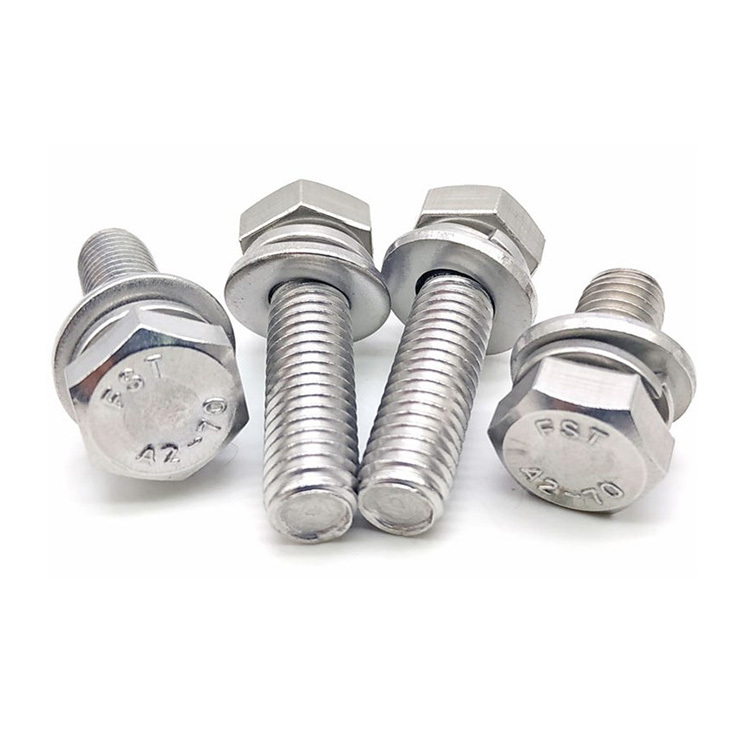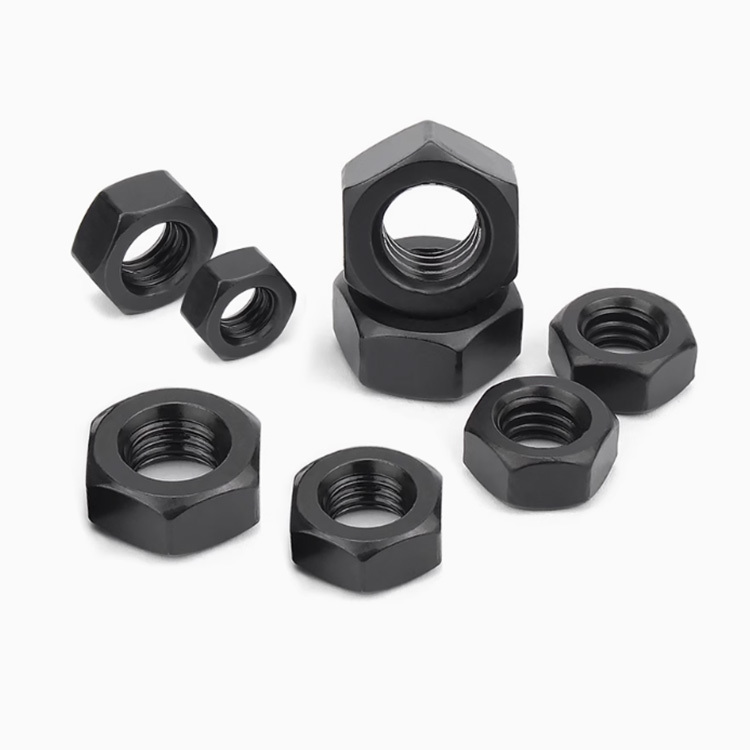A Comprehensive Guide to Hexagon Socket Bolt Materials and Their Benefits
Feb 15,2025
A Comprehensive Guide to Hexagon Socket Bolt Materials and Their Benefits
Table of Contents
Introduction to Hexagon Socket Bolts
Understanding Hexagon Socket Bolt Design
Popular Materials for Hexagon Socket Bolts
Stainless Steel
Carbon Steel
Alloy Steel
Brass
Plastic and Composite Materials
Benefits
A Comprehensive Guide to Hexagon Socket Bolt Materials and Their Benefits
Table of Contents
- Introduction to Hexagon Socket Bolts
- Understanding Hexagon Socket Bolt Design
- Popular Materials for Hexagon Socket Bolts
- Benefits of Using Different Bolt Materials
- How to Choose the Right Material for Your Hexagon Socket Bolts
- Applications of Hexagon Socket Bolts in Various Industries
- Maintenance Tips for Hexagon Socket Bolts
- FAQs about Hexagon Socket Bolts
- Conclusion
Introduction to Hexagon Socket Bolts
Hexagon socket bolts, commonly known as Allen bolts, are fasteners characterized by their hexagonal recess, allowing for easy installation and removal using an Allen key or hex wrench. These bolts are widely utilized across various industries due to their versatility, strength, and ease of use. Understanding the materials used in their construction is crucial for ensuring the right choice for specific applications.
Understanding Hexagon Socket Bolt Design
The design of hexagon socket bolts involves several key elements that contribute to their effectiveness as fasteners. These include the head shape, which provides a secure grip for tools, and the threaded shaft, which enables secure fastening. The combination of these design features allows for high torque applications, making them suitable for diverse settings, from automotive manufacturing to construction.
Popular Materials for Hexagon Socket Bolts
Choosing the right material for hexagon socket bolts is essential to their performance and longevity. Below are some common materials used in their production:
Stainless Steel
Stainless steel is one of the most popular materials for hexagon socket bolts. Its primary advantage lies in its excellent **corrosion resistance**, making it ideal for applications in harsh environments. Stainless steel bolts are often used in marine applications, food processing, and chemical industries, where exposure to moisture and chemicals is common.
Carbon Steel
Carbon steel is another widely used material for hexagon socket bolts, notable for its **high tensile strength**. These bolts are often coated to enhance their corrosion resistance, allowing them to be used in a variety of applications including construction and automotive industries. The balance between strength and cost-effectiveness makes carbon steel bolts a popular choice.
Alloy Steel
Alloy steel hexagon socket bolts contain additional elements such as chromium, nickel, and molybdenum, which enhance their mechanical properties. These bolts are known for their **increased hardness** and **temperature resistance**, making them suitable for high-stress applications such as aerospace and heavy machinery.
Brass
Brass hexagon socket bolts are appreciated for their **good corrosion resistance** and aesthetic appeal. While they are not as strong as steel options, brass bolts are often used in electrical applications and scenarios where non-magnetic properties are required. Their ability to resist tarnishing makes them suitable for decorative uses as well.
Plastic and Composite Materials
Hexagon socket bolts made from plastic or composite materials offer unique benefits, especially in environments where **electrical insulation** and **lightweight** fasteners are required. These materials are typically resistant to corrosion and chemicals, making them ideal for specific applications like electronics and chemical processing.
Benefits of Using Different Bolt Materials
Different materials provide distinct advantages, and understanding these benefits is crucial for making informed choices in industrial applications.
Corrosion Resistance
Corrosion resistance is a significant factor in the selection of hexagon socket bolts. Stainless steel and plastic bolts excel in this area, ensuring prolonged durability and performance in corrosive environments.
Strength and Durability
Materials such as carbon steel and alloy steel are favored for their strength and durability. These bolts can withstand high loads and stresses, making them suitable for heavy-duty applications.
Weight Considerations
When weight is a critical factor, especially in aerospace or automotive applications, plastic and composite materials offer significant advantages. They provide the necessary strength without the added weight of metal options.
Cost-Effectiveness
Cost is always a consideration in manufacturing and construction. Carbon steel bolts typically offer a favorable balance of strength and affordability, making them a preferred choice for many applications.
How to Choose the Right Material for Your Hexagon Socket Bolts
Selecting the right material involves assessing the specific requirements of your application. Consider the following factors:
- **Environmental Conditions**: If the bolts will be exposed to moisture or chemicals, prioritize materials like stainless steel or plastic.
- **Strength Requirements**: For high-load applications, opt for carbon steel or alloy steel.
- **Weight Constraints**: If weight is a concern, look towards plastic or composite options.
- **Budget**: Evaluate the cost versus performance to ensure you select a material that meets your needs without overspending.
Applications of Hexagon Socket Bolts in Various Industries
Hexagon socket bolts find applications across numerous sectors, showcasing their versatility:
- **Automotive Industry**: Used in assembling various components where high strength and reliability are essential.
- **Aerospace**: Preferred for their strength-to-weight ratio, especially in lightweight structures.
- **Construction**: Commonly used in structural applications due to their durability.
- **Electronics**: Plastic hexagon socket bolts are often used in sensitive electronic devices to prevent short circuits.
Maintenance Tips for Hexagon Socket Bolts
To ensure the longevity and performance of hexagon socket bolts, consider the following maintenance tips:
- **Regular Inspections**: Periodically check bolts for signs of wear or corrosion.
- **Proper Torque Settings**: Always use the recommended torque settings to avoid over-tightening, which can cause damage.
- **Cleaning**: Keep bolts clean and free from debris that could interfere with their function.
- **Replacement**: Replace any damaged or worn bolts promptly to maintain safety and performance.
FAQs about Hexagon Socket Bolts
1. What are hexagon socket bolts used for?
Hexagon socket bolts are used as fasteners in various applications, ranging from automotive assembly to construction projects.
2. Are stainless steel hexagon socket bolts better than carbon steel?
Stainless steel bolts offer better corrosion resistance, while carbon steel bolts typically provide higher tensile strength. The choice depends on the application requirements.
3. Can I use plastic hexagon socket bolts in high-stress applications?
Plastic hexagon socket bolts are not suitable for high-stress applications as they lack the tensile strength of metal bolts.
4. How do I know which material to choose for my application?
Consider factors such as environmental conditions, strength requirements, weight constraints, and budget when selecting the material.
5. What maintenance do hexagon socket bolts require?
Regular inspections, proper torque settings, cleaning, and timely replacements are essential for maintaining hexagon socket bolts.
Conclusion
Understanding hexagon socket bolt materials is crucial for selecting the right fasteners for your industrial applications. With an array of materials available, from stainless steel to plastic, each option presents unique benefits suited for various environments and requirements. By evaluating your specific needs, you can make informed decisions that enhance the performance, durability, and cost-effectiveness of your projects. Whether you are in the automotive, aerospace, or construction industry, knowing the advantages of different materials will empower you to optimize your applications effectively.
TAG:
NEXT:
Contact Us
Address
Yongnian District, Handan City, Hebei Province, China



